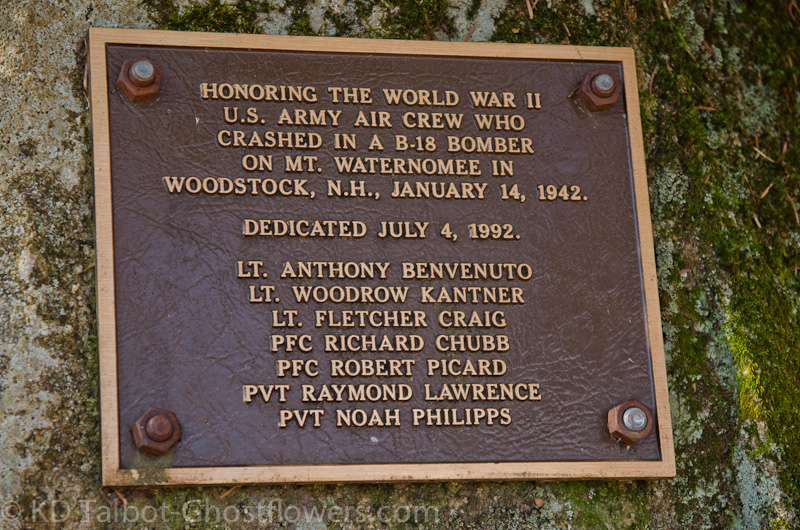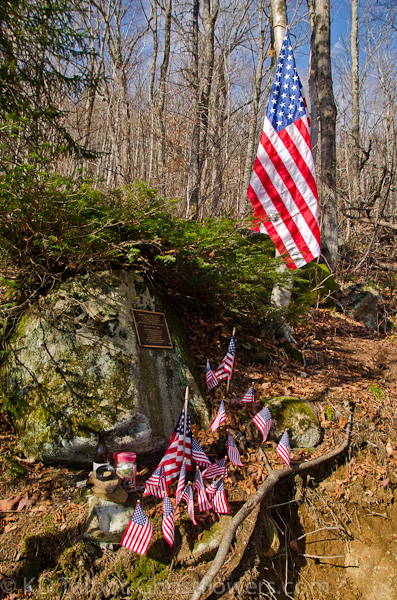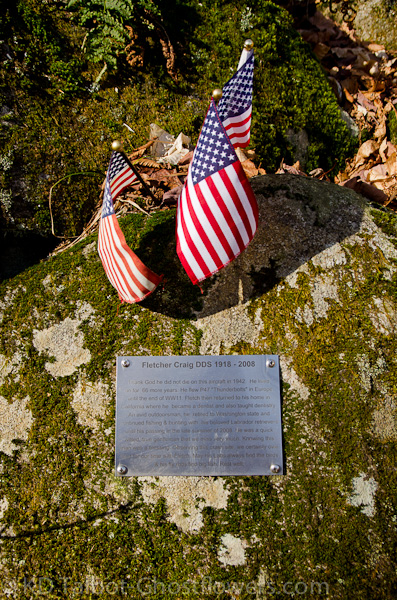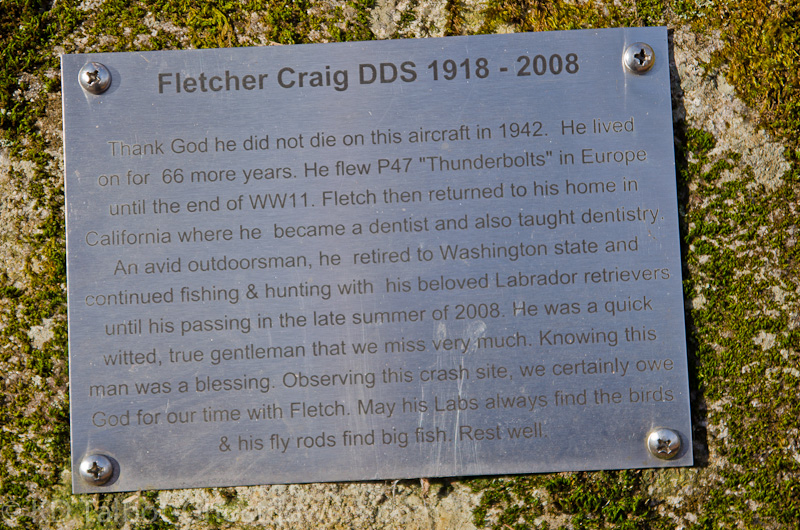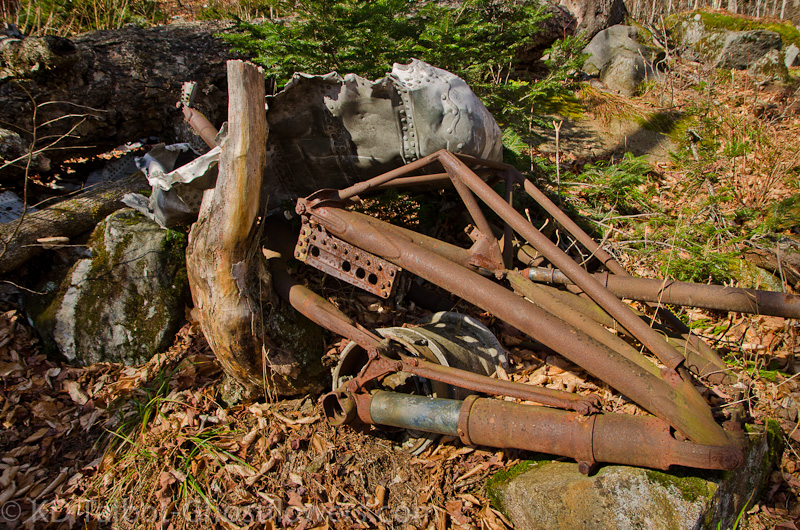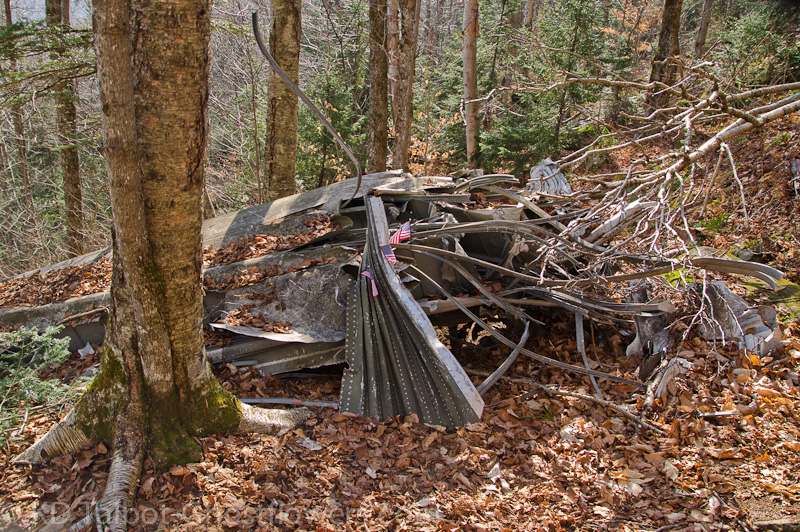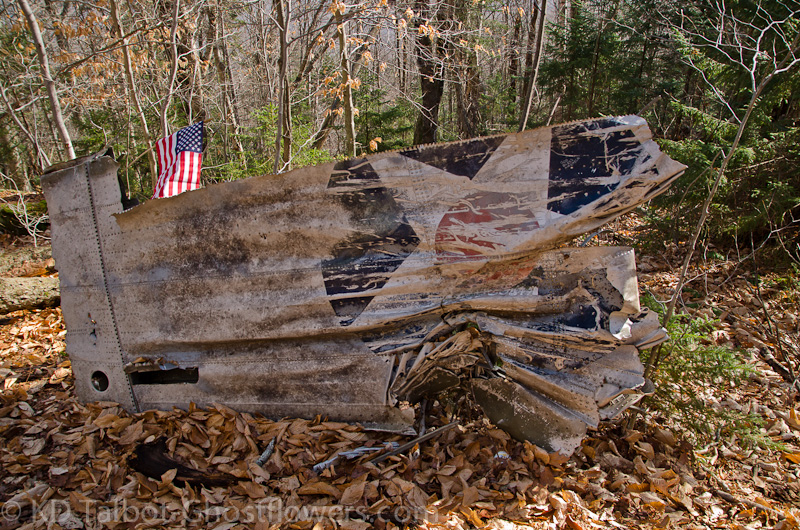Kevin Judy and Emma
Well-known member
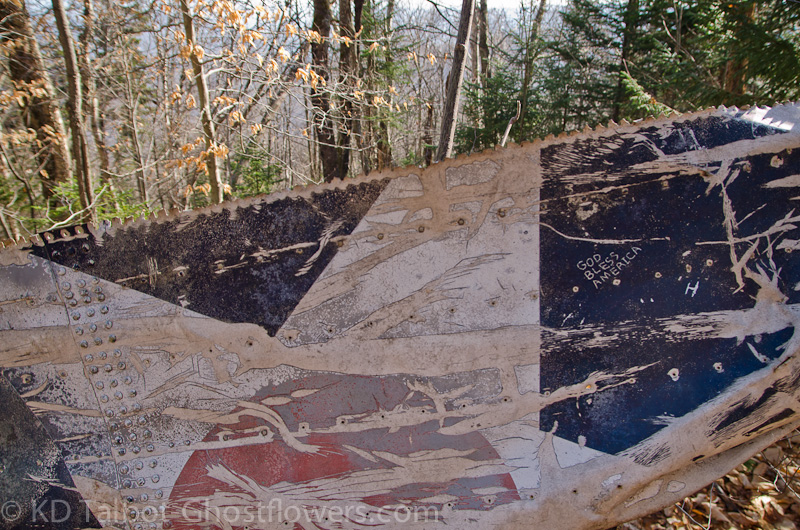
B-18 Crash Site- Mount Waternomee
Walker Brook Road/Herd Path
4.6 Miles 1380' Elevation gain
Kevin, Judy, Emma and Bob
Judy, Emma and I had tried to make this hike a couple of years ago on Veteran's Day but were turned around in sleet and icy conditions. Today the weather would be a bit more cooperative setting a high-temp record at the summit of Mount Washington at 46*. Here on the north side of Mount Waternomee far to the southwest of Mount Washington and a few thousand feet lower the temperature rose into the high 50's. Well into the hike I stripped off a wet shirt and continued bare-back. Outside of a little mud and lots of leaves there were no difficult trail conditions. It was a good day to be in the woods.

This time Bob, a friend we had worked with for years, was along with us. As we walked the easy first mile along Walker Brook Road I told him why I was interested in visiting this site. On May 18th 1944 my father left Westover Airfield in Chicopee, Ma. on a training mission in a B-24. He was a 2nd Lt. and the navigator on board. During the training flight his plane was involved in a mid-air collision over Uxbridge, Ma. His life was saved by a parachute that day as was one other crew-mate. The rest of the crew was not so fortunate. 5 of the 7 on board his plane died without ever seeing a minute of combat. There is more complete information on that crash, and my father's ordeal HERE:
http://ghostflowers.smugmug.com/Oth...emony/17103510_jJmdVx#!i=1296015330&k=c5sK3ZQ
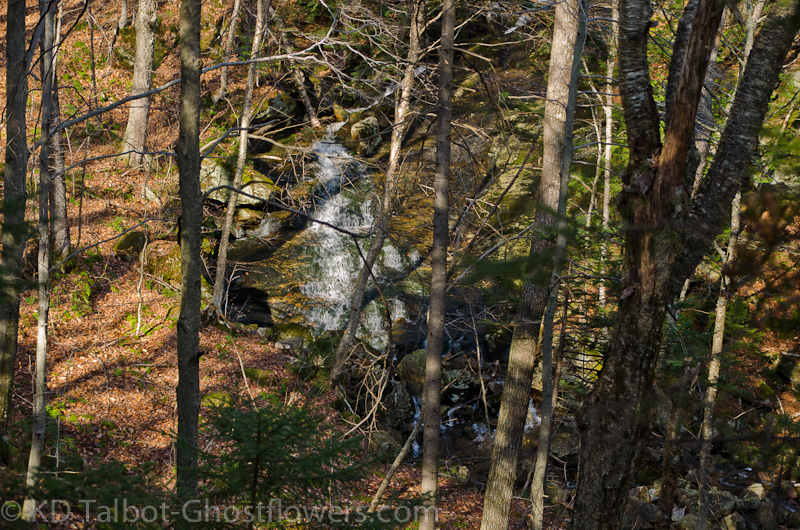
But this is not a story about my father. This is a similar story about a crew who also flew out of Westover. Excepts from "The Night the Bomber Crashed, The story of North Woodstock's Famous WWII Bomber Crash" by Floyd W. Ramsey, Author of "Shrouded Memories" and published by Bondcliff Books, are in quotation and italics: On patrol on Wednesday January 14, 1942 their assignment was searching out German submarines along the east coast as far north as Newfoundland. "German submarines were known to frequent the shipping lanes with the intent of torpedoing Allied convoys carrying badly needed war materials to the British Isles and Russia."
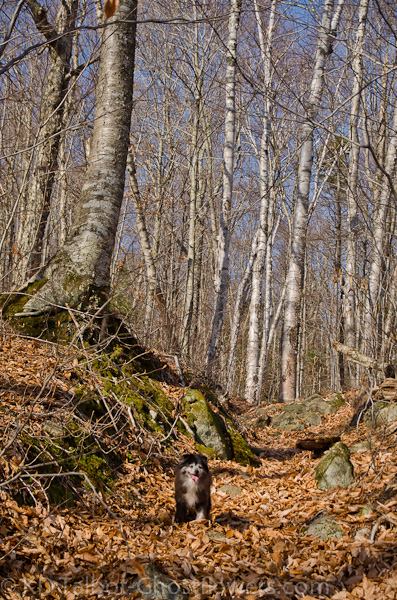
"It was on the return flight that the aircraft first encountered the blinding snow squalls and drastic wind changes just off the New Jersey coast that were to throw it so far off course. Part of the dilemma was also caused by the navigator's inability to compute the drift factor. Added to this was the fact that the officers aboard the plane were a "borrowed crew thrown together for this one particular assignment."
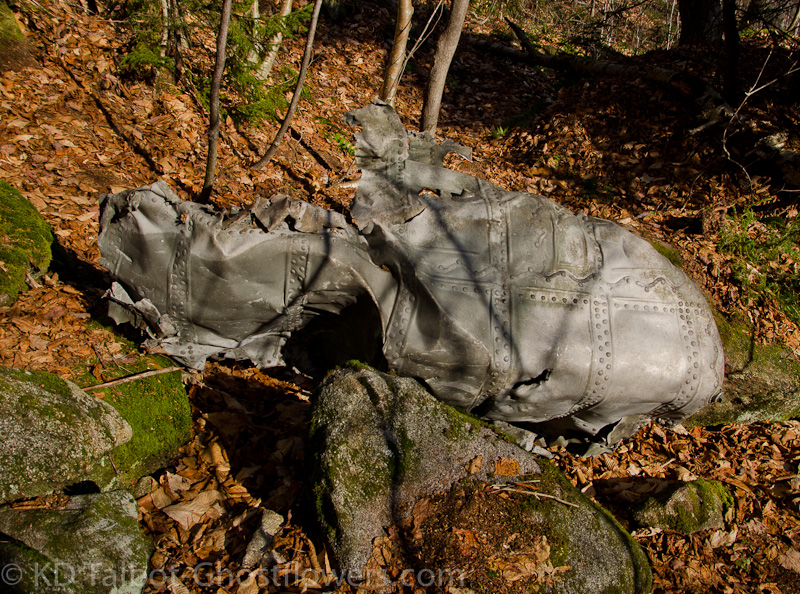
"1st Lt. Anthony Benvenuto of Brooklyn, NY was the pilot, 2nd Lt. Woodrow Kantner of Crawford, NJ, was co-pilot, and 2nd Lt. Fletcher Craig of Gridley, Ca. was the navigator. Backing them as "fill-ins," PFC Robert Picard of Springfield, Ma. was a machine-gunner, Pvt. Richard Chubb of North Billerica, Ma. was the aircraft mechanic, Pvt. Raymond Lawrence of Worcester, Ma. was another gunner, and Pvt. Noah Phillips of Fayetteville, Arkansas, was bombardier."
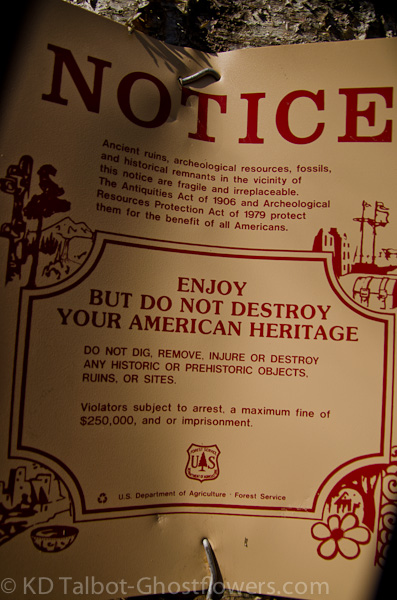
"Though the plane was completely enveloped by snow squalls, Lt. Benvenuto continued to maintain a surveillance altitude of 4,000 feet. It was his belief that they were still over the Atlantic Ocean. With each passing minute, however, Lt. Craig grew more and more uncertain as to just where they were. When a momentary break in the clouds revealed the lights of a city below them, all three men believed they were passing over Providence, Rhode Island. Acting on that assumption, navigator Craig handed Benvenuto the coordinates that would bring them over Westover Field."
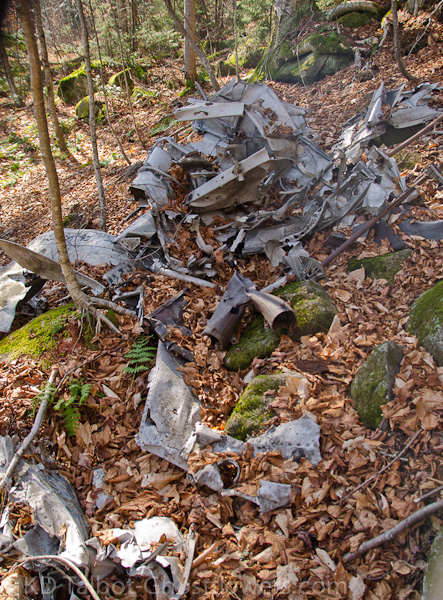
"Now flying a northwesterly course, the plane became harder to handle the controls. Before long, drenched with sweat and fighting fatigue, Lt. Kantner desperately began twisting the overhead radio dial in an attempt to establish a fix on their location. Not knowing how far off course they were, he was dialing the wrong frequency." "With the ice buildup growing worse, airspeed dropped to 160 mph. Only the carburator heat control kept the two 1,000 hp engines running. In an attempt to lessen the icing problem, Lt. Benvenuto dropped the plane to 3800 feet. By doing so, he put them on a collision course with the mountains that lay directly ahead." "As it turned out, the city they had seen earlier was not Providence, Rhode Island. It was Concord, NH!"
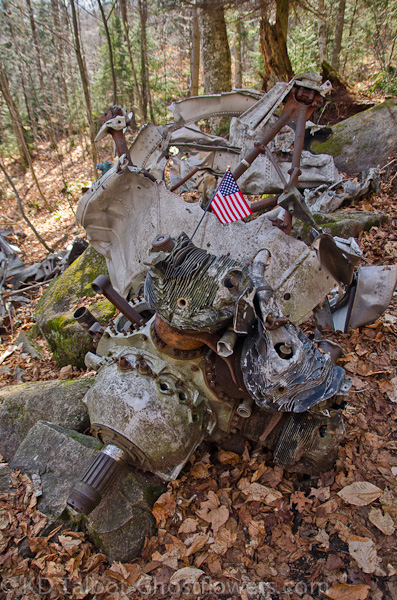
"Shearing off treetops, the 27,000 lb airplane pancaked its way through deep snow. As it smashed through a thick growth of trees, one wing was ripped off by a yellow birch, part of the other wing also disappeared. Traveling over a distance of 70 yds, the body of the aircraft split open before it finally ground to a stop and settled in the snow. With the wind howling furiously over and through the wreckage, high-octane fuel began dripping on the one remaining engine. Minutes later a fire erupted, and it rapidly worked its way through the fuselage. Seemingly possessed of a deadly intent, it headed straight toward the 300 lb bombs!"
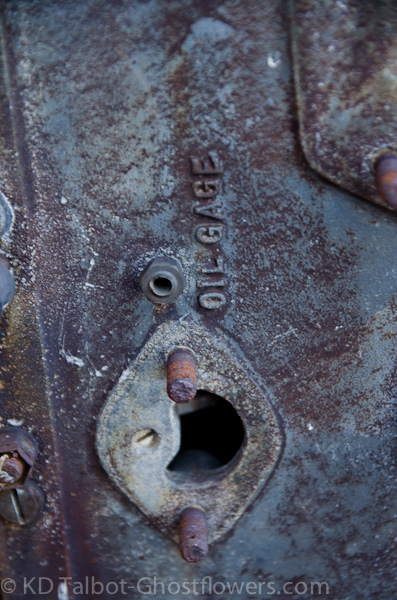
Witnesses in the valley were aware of three loud explosions which, "As a matter of record, the shock waves from the blast were so powerful that they were actually felt 22 miles to the south in the small college town of Plymouth." The rest of the story is of the heroic effort of the good people of Lincoln and North Woodstock who put their lives on hold to go to the aid of these, their fallen, unknown protectors. There are names far too many to print here of the heroes who ventured forth in the dark and falling snow on a cold January night to bushwhack to a cold and desolate mountainside to help in what ever way they could. Indeed, it is a recurring theme in the mountains, and in America, of people pulling together to help one another at need!

This is what they found: "As McInnis' group progressed up the mountain, each of the men took turns breaking trail. During the ascent blowdown caused by the 1938 hurricane proved to be a chronic problem. At one point a member of the party found himself chest deep in the snow when he dropped between two fallen trees. With the ascent growing steeper, and the snow depth increasing, exhaustion began to affect the older men. Rest stops became more frequent. Going into the third mile, the group began shouting "Hello! Hello!" hoping for a return response. Periodically they stopped and listened for any replies that might be heard over the roaring mountain winds."
CONTINUED:

